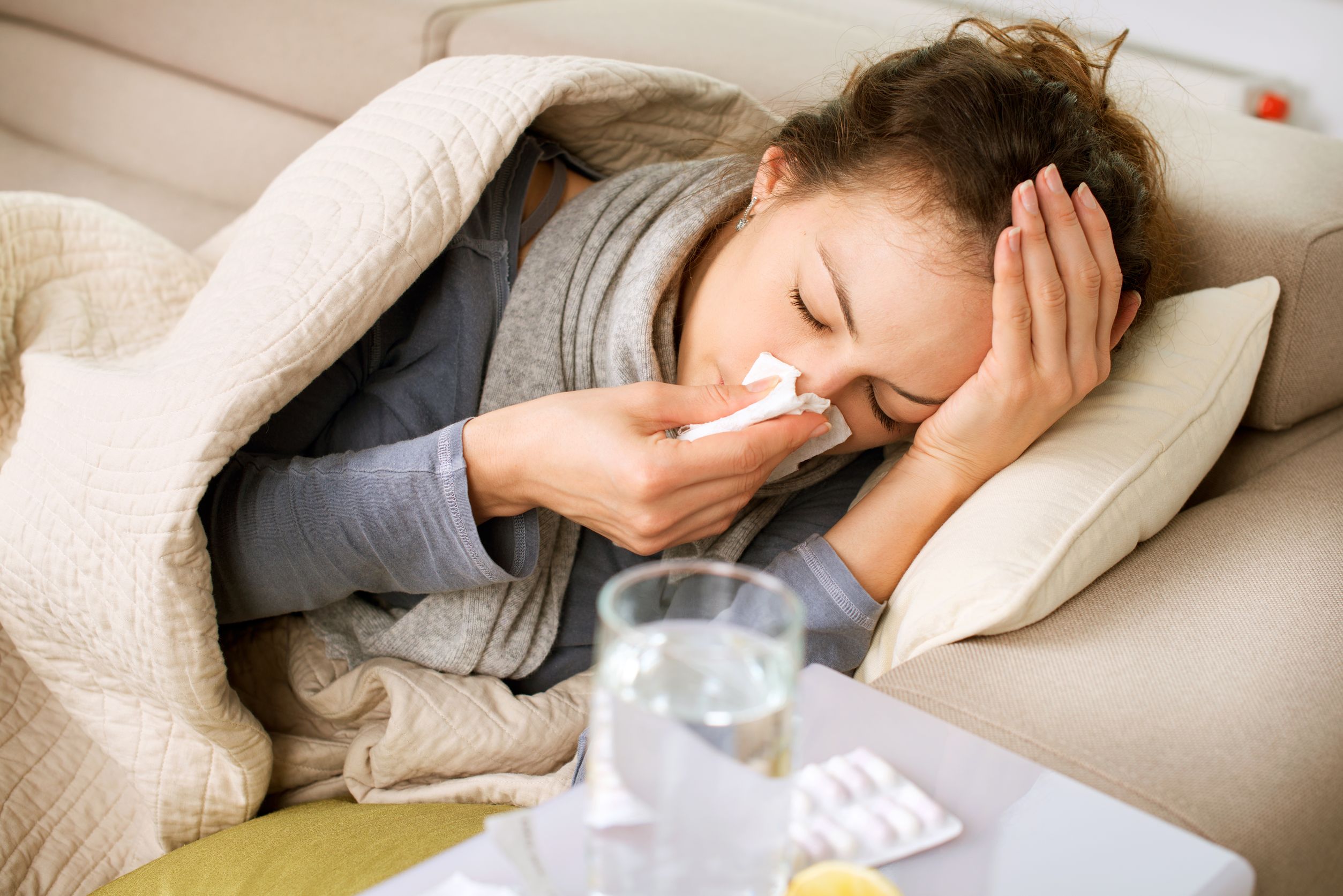
With cold season coming, follow these easy tips to prevent getting sick:
Tip 1: Wash your hands!
Hand washing is the most effective and best preventive measure to prevent cough and cold. Hands are the most common vehicle for spreading the cold and flu viruses. Wash your hand with warm water and soap for at least 20 seconds. If soap and water is not available, use an alcohol-based hand sanitizer. You can learn more about good handwashing tips here.
Tip 2: Get your flu shot
A flu shot is your best defense against the flu. It takes 2 weeks to build immunity; therefore, it is recommended to get your flu shot as soon as possible. Learn more about common flu shot myths.
Tip 3: Avoid touching your face .
.
Cold and flu viruses most commonly enter your body through your eyes, nose, and mouth. Use a tissue to wipe eyes or nose to prevent contracting a virus or infection.
Tip 4: Quit smoking
Smoking decreases your body’s immune system, making you more likely to catch a cold. Smoking can also make it easier for you to catch a cold by affecting the cilia (small hairs in the back of your nose) that help trap the flu and cold viruses destroying antioxidants in the body, and destroying antibodies that help fight off infection. Visit SmokeFree.gov to learn more about how to quit smoking today.
Tip 5: Sanitize your space
If you come into contact with someone who may potentially be sick, sanitize all surfaces, especially those that are shared, such as telephones, any computer mouse, and door knobs. Rhinoviruses can live on surfaces for up to 48 hours.
Common Cough, Cold, and Flu Questions Answered
- I have this really dry, hacking cough and I just want it to stop, is there anything over the counter that I can take?
- Dextromethorphan, otherwise known as Delsym, is best used to suppress a dry cough. However, consult your local pharmacist if you are taking an antidepressant before self-medicating.
- I have this cough with a lot of phlegm and it’s really bothering me. Can you recommend anything?

- Guaifenesin, commonly sold as Mucinex, with lots of hydration is recommended. Guaifenesin will break up the mucus causing the chest congestion and your coughing will help clear it out of your system. It is important to make sure you are well hydrated to allow the guaifenesin to break up that phlegm.
- I have this fever that I really want to lower, what is my best option?
- A fever is a natural response to an infection. It is important to note that treatment is generally not required. However, there are several over the counter options, such as acetaminophen, commonly known by the brand name Tylenol, or NSAIDs such as ibuprofen or naproxen, commonly seen as Advil or Aleve.
- I have a lot of nasal congestion. Is there something I should look for in these over the counter products?
- Products with phenylephrine or pseudoephedrine will help with decongestion. When speaking with your pharmacist, be sure to him or her if you have high blood pressure. These medications can sometimes raise blood pressure too much.
- I really like the taste of cough drops and the fact that they are really soothing but I was wondering, how do they work?
- Medicated cough drops usually have menthol which is a local anesthetic to “numb” the nerves in the throat to help with irritation. This relief is often temporary. If you are diabetic, you should be cautious about the sugar content in regular cough drops and opt for the sugar free formulations
Sources:
- A Guide for the Cold & Flu Season. 2016. Available at: http://srhd.org/documents/Health_Topics/CF-brochure.pdf. Accessed November 4, 2016.
- CDC Says “Take 3” Actions to Fight the Flu| Seasonal Influenza (Flu) | CDC. Centers for Disease Control and Prevention. 2016. Available at: http://www.cdc.gov/flu/protect/preventing.htm. Accessed November 4, 2016.
- Cover Your Cough| Seasonal Influenza (Flu) | CDC. Centers for Disease Control and Prevention. 2016. Available at: http://www.cdc.gov/flu/protect/covercough.htm. Accessed November 4, 2016.
- Dlugosz, Cynthia Knapp. The Practitioner’s Quick Reference To Nonprescription Drugs. Washington, D.C.: American Pharmacists Association, 2009.
Created by: Colleen Nguyen, VCU School of Pharmacy PharmD Candidate 2017


